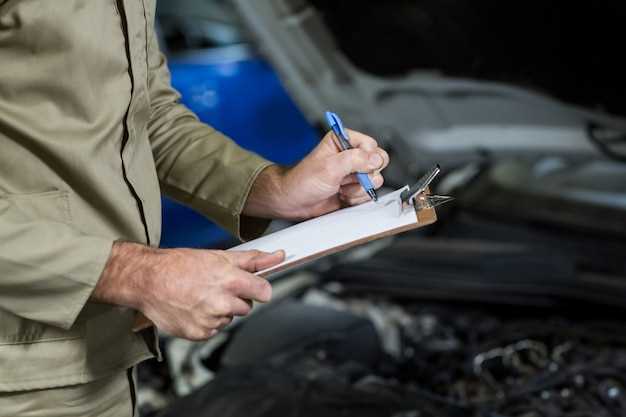
Classic car enthusiasts often find themselves immersed in a passion that transcends mere transportation. However, owning and operating a classic car comes with a set of legal obligations that must not be overlooked. Understanding these legal requirements is crucial for ensuring both compliance with the law and the preservation of their valuable vehicles.
The first area of concern for classic car owners is vehicle registration and insurance. Depending on the jurisdiction, classic cars may be subject to different regulations compared to standard vehicles. Legal requirements typically include obtaining special licenses and maintaining adequate insurance coverage that reflects the car’s classic status. Enthusiasts should familiarize themselves with these stipulations to avoid potential fines or legal issues.
In addition to registration and insurance, classic car owners must be aware of regulations regarding vehicle modifications and emissions standards. Many regions have strict guidelines governing what alterations can be made to a classic car and how these changes may impact its legality on the road. Compliance with these laws not only protects the integrity of the vehicle but also ensures that it remains street-legal and safe for public use.
Understanding Registration and Documentation Requirements
Classic car enthusiasts must adhere to specific rules regarding the registration and documentation of their vehicles. Compliance with these legal requirements is essential to ensure ownership and legality on the road.
The first step is to register the classic car with the appropriate local government authority. This process typically involves submitting an application that includes details such as the vehicle’s make, model, year, and identification number. Enthusiasts should verify whether their state has unique provisions for classic cars. Some regions offer special plates or reduced fees for vehicles classified as “historic” or “classic.”
Documentation is equally important. Owners should maintain a comprehensive history of the vehicle, including previous registrations, purchase agreements, and any restorations undertaken. This documentation not only showcases the classic car’s provenance but also aids in establishing its value and authenticity.
Additionally, staying informed about state-specific rules regarding emissions and safety inspections is crucial. Certain jurisdictions may have relaxed regulations for classic cars, while others may require compliance with modern standards. Understanding these local laws can save enthusiasts from fines or legal complications.
In summary, classic car enthusiasts must navigate various legal obligations to ensure proper registration and documentation of their vehicles. By familiarizing themselves with the rules and maintaining accurate records, owners can enjoy their classic cars while remaining compliant with the law.
Insurance Policies and Coverage Necessities for Classic Cars

When it comes to classic cars, understanding the specific insurance policies and coverage necessities is crucial. Classic car owners are often passionate about their vehicles, and securing the right protection reflects this commitment. The unique nature of these cars requires tailored insurance solutions that align with their value and usage.
Many standard car insurance policies may not cover classic or vintage vehicles adequately. Therefore, it is essential to look for specialized classic car insurance that complies with industry rules. These policies typically account for the car’s condition, market value, and usage, ensuring that owners are not left exposed in case of damage or theft.
A key element of classic car insurance is agreed value coverage. This type of policy stipulates a predetermined amount that the insurance company will pay in the event of a total loss, rather than the actual cash value, which can be lower than expected. Understanding this aspect of coverage is vital for protecting one’s investment.
Additionally, classic car enthusiasts should consider the legal obligations associated with car ownership. Some states may have specific insurance requirements for classic vehicles, which might differ from those of regular cars. Ensuring compliance with these regulations is essential to avoid fines and penalties.
Ultimately, selecting the right insurance for classic cars involves careful consideration of coverage levels, potential usage, and assessment of associated legal standards. This thorough approach enables owners to safeguard their cherished vehicles effectively.
Compliance with Emissions Standards and Safety Regulations

Classic car enthusiasts must navigate a complex landscape of legal obligations related to emissions standards and safety regulations. As environmental concerns grow, regulations specifically governing vehicle emissions have become stricter across many jurisdictions. Classic cars, often equipped with outdated technologies, may not naturally comply with modern rules. Enthusiasts should familiarize themselves with local and national requirements regarding emissions testing and compliance to avoid legal complications.
In addition to emissions standards, safety regulations are paramount in the ownership of classic vehicles. Many vintage cars lack modern safety features, which raises questions about their roadworthiness. It is essential for owners to ensure that their vehicles meet minimum safety standards, including functioning brakes, lights, and seat belts. Several regions require periodic inspections for older cars to ensure they comply with legal safety requirements.
For those looking to modify or restore classic cars, understanding how such changes might impact compliance is crucial. Some modifications may enhance performance but could also lead to violations of emissions rules. Therefore, it is advisable to consult with professionals who understand both the automotive and legal landscapes to ensure that any adaptations do not compromise compliance.
Ultimately, while classic cars symbolize nostalgia and craftsmanship, their owners must remain vigilant in adhering to emissions and safety regulations to enjoy their vehicles legally and responsibly.




